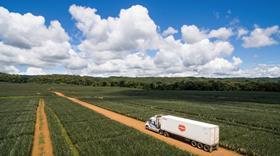
Fresh Del Monte has reported on an increase in sales for the third quarter (Q3) of 2021, although its net income fell as factors such as inflation and a lack of labour hit home.
Net sales for the third quarter climbed US$15.1m year-on-year, or 2 per cent, up from US$989.7m to just over US$1bn.
The increase in net sales was driven by higher net sales across all the company's segments, Del Monte noted, while sales were also positively impacted by favourable exchange rates.
However, gross profit and operating income fell through Q3, down US$17.4m and US$25.3m respectively, hurt by inflation, strained transportation capacity, lack of sufficient labour availability and other cost pressures.
According to Del Monte, this resulted in higher per-unit production and distribution costs including packaging materials, fertilisers, inland freight, labour and fuel costs.
The impact of these pressures in the third quarter was intensified by seasonality, the company outlined, as it has historically realised a greater portion of net sales and gross profit during the first two calendar quarters of the year.
Net income attributable to Del Monte fell from US$17.4m in same quarter of 2020, down to US$1.3m.
“While we continue to operate in one of the most challenging macroeconomic environments in recent history, impacted by inflationary and cost pressures across our supply chain, we remain focused on growth by managing our business for the long term and on continuing to provide reliable, quality service to our customers,' said Mohammad Abu-Ghazaleh, chairman and chief executive officer.
“In terms of seasonality, the second half of the year is typically more challenging due to industry-wide excess supply and shifts in demand towards seasonal fruits,' he continued. 'During the third quarter, we continued to experience significantly higher input cost and labour shortages, which impacted our margins and profitability. To offset this impact we are implementing inflation-justified price increases in an effort to maintain our continuous supply and service levels.
'As we move forward, we believe that our recent capital investments in the automation of our production facilities, further leveraging of our vertical integration, such as the recent addition of six new refrigerated container vessels to our fleet, optimisation and consolidation of our operations and product rationalisation will prove to be advantageous by putting us in a stronger, more agile position,' Abu-Ghazaleh added.



